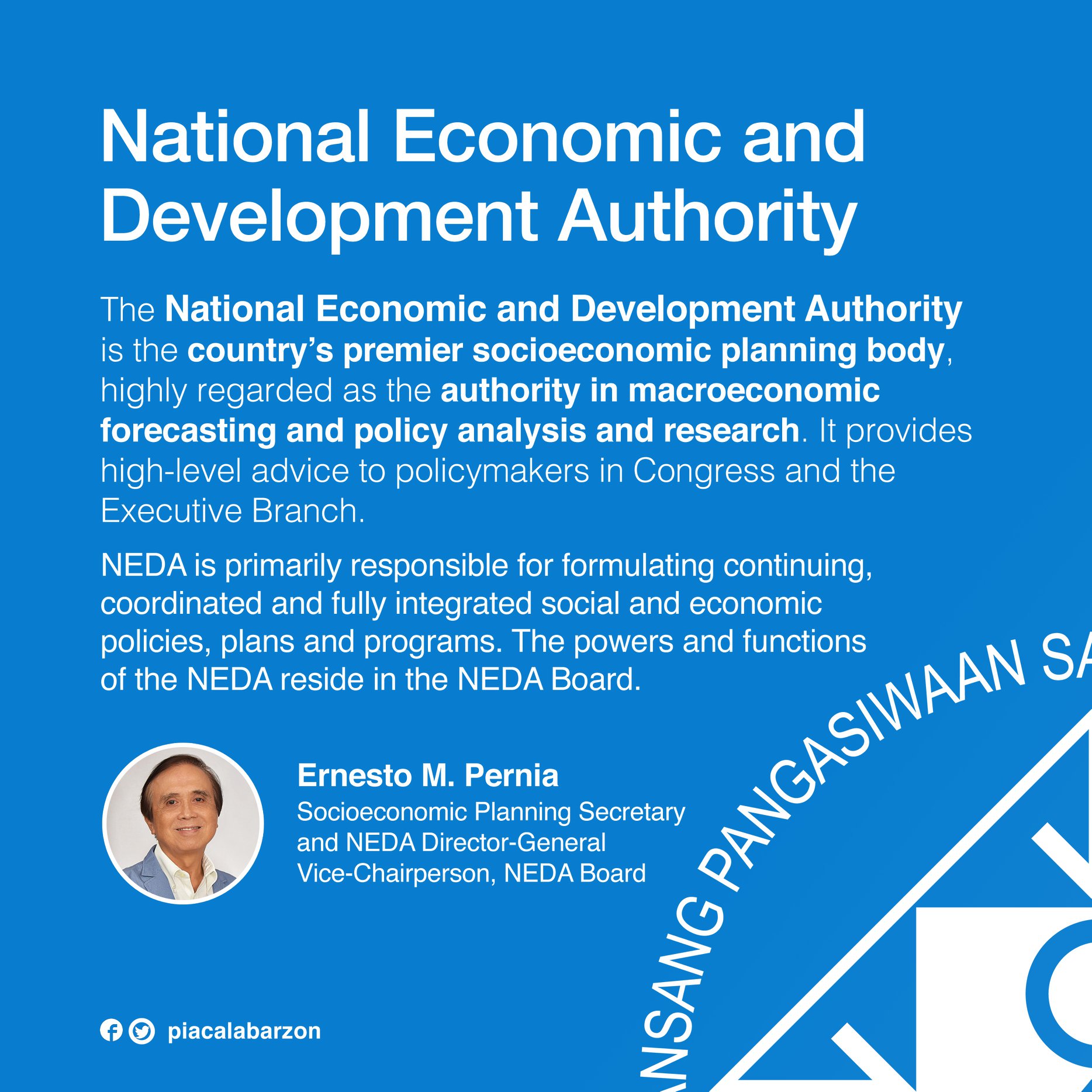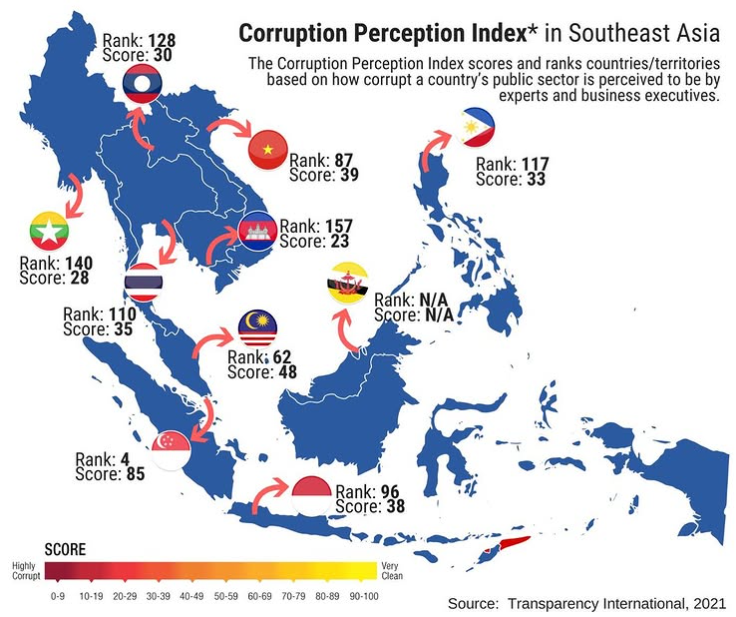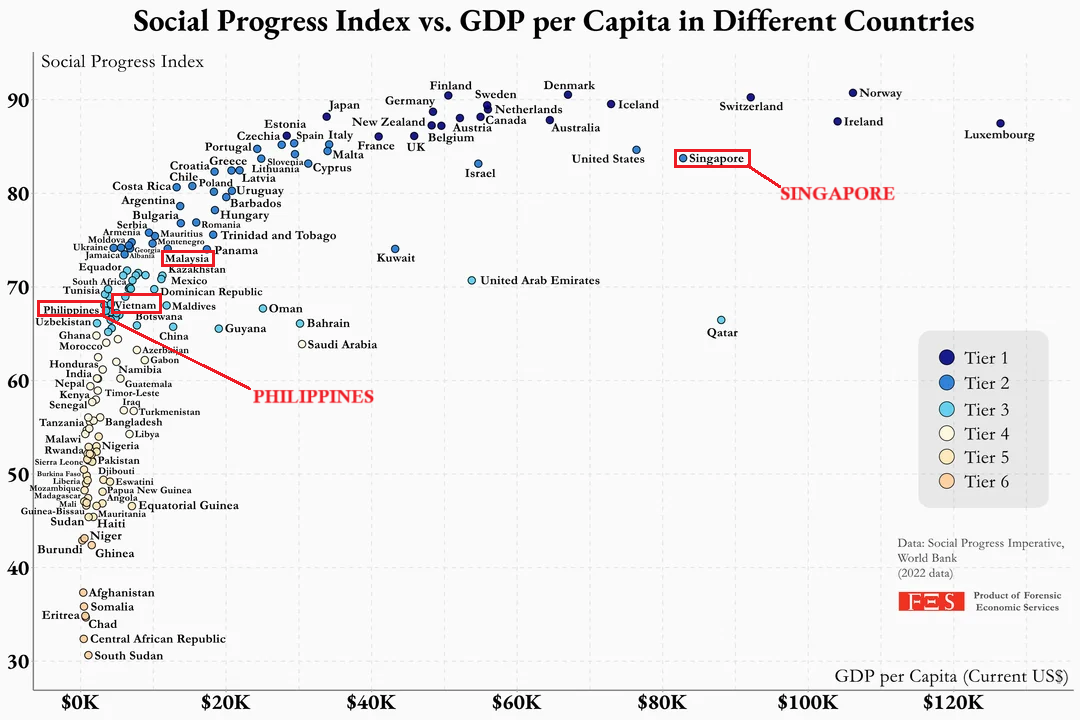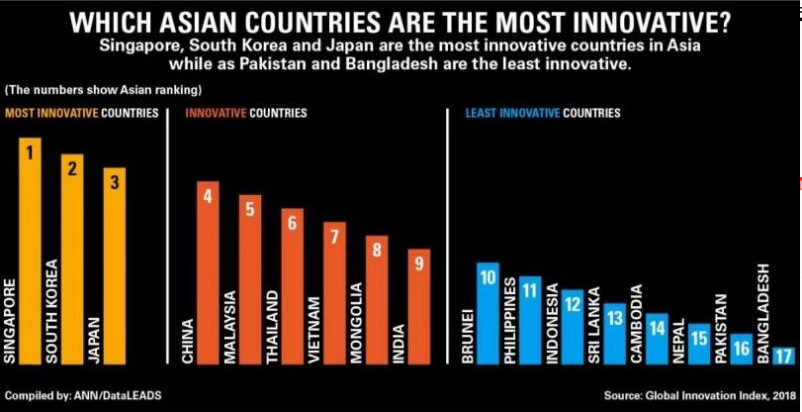The Role of NEDA in the Development of the Philippines: Successes, Challenges, and Regional Comparisons
Introduction
The National Economic and Development Authority (NEDA) is the Philippines' primary socio-economic planning and policy coordination agency. Established in 1972 through Presidential Decree No. 1 by then-President Ferdinand Marcos, NEDA was envisioned as the government's chief planning body to guide the nation toward sustainable development, poverty reduction, and inclusive growth. However, despite its critical role in shaping the country's development trajectory, the Philippines continues to lag behind its regional neighbors like Singapore, Malaysia, Indonesia, Vietnam, and Thailand. This article explores the historical context, achievements, and current challenges faced by NEDA, while comparing the socio-economic and environmental progress of the Philippines with its ASEAN counterparts.
 NEDA's Historical and Current Role
NEDA's Historical and Current Role
NEDA was created to provide direction for the country's economic and social policies. Over the years, it has been instrumental in crafting long-term development frameworks, including the Philippine Development Plan (PDP) and the AmBisyon Natin 2040, a long-term vision for a prosperous and predominantly middle-class society by 2040.
Key Functions of NEDA
Formulation of Development Plans: NEDA prepares the Philippine Development Plan (PDP), a six-year socio-economic roadmap aligned with the current administration's priorities.
Policy Coordination: The agency ensures that government policies and programs are harmonized to achieve the country's development goals.
Public Investment Programming: NEDA evaluates and approves major public infrastructure projects through the Public Investment Program (PIP).
Monitoring and Evaluation: The agency tracks the progress of development programs and policies to ensure accountability and impact.
Despite these critical functions, NEDA's impact has been limited by various systemic issues, including political interference, slow project implementation, and underfunding.
NEDA's Role in Regional Development
At the regional level, NEDA plays a crucial role in ensuring that the development plans of various regions align with national priorities. Each region has its own unique challenges and opportunities, and NEDA's Regional Development Councils (RDCs) are tasked with formulating Regional Development Plans (RDPs) that address these specific needs.
Key Functions in Regional Development:
Formulation of Regional Development Plans: NEDA Regional Offices ensure that RDPs align with the Philippine Development Plan while addressing the unique socio-economic context of each region.
Coordination of Regional Projects: NEDA facilitates the prioritization and funding of regional infrastructure and development projects.
Monitoring and Evaluation: The agency monitors the implementation of regional projects to ensure they achieve their intended outcomes.
However, NEDA's effectiveness at the regional level is often compromised by political interference. Many local development projects are influenced by powerful political figures, which can lead to misallocation of resources and delays in project implementation.
The Philippines' Development Compared to Regional Neighbors
Since its establishment, the Philippines has made strides in economic growth and poverty reduction. However, when compared to regional counterparts like Singapore, Malaysia, Indonesia, Vietnam, and Thailand, the country's progress has been relatively slow. The following comparison highlights key socio-economic indicators:
| Country | GDP per Capita (USD) | Human Development Index (HDI) | Global Innovation Index | Ease of Doing Business Rank |
|---|---|---|---|---|
| Singapore | 72,794 | 0.935 | 7 | 2 |
| Malaysia | 13,676 | 0.803 | 36 | 12 |
| Thailand | 7,382 | 0.800 | 43 | 21 |
| Vietnam | 4,165 | 0.703 | 48 | 70 |
| Indonesia | 4,291 | 0.718 | 85 | 73 |
| Philippines | 3,640 | 0.699 | 59 | 95 |
Economic Growth
While the Philippines has experienced steady economic growth over the past decade, it still lags behind its neighbors in GDP per capita and industrial output. Countries like Vietnam and Indonesia have outpaced the Philippines in attracting foreign investments, improving infrastructure, and fostering innovation.
Human Development
The Philippines' Human Development Index (HDI) is lower than most of its ASEAN peers. Issues such as poverty, unequal access to education, and healthcare continue to hinder the country's human capital development.
Innovation and Ease of Doing Business
Innovation is critical for long-term economic growth. However, the Philippines ranks lower than Malaysia, Singapore, and Thailand in the Global Innovation Index. Additionally, the country's business environment remains challenging, with bureaucratic red tape, corruption, and inconsistent regulations deterring investors.
Why Has NEDA's Role Fallen Short?
Despite its mandate to guide the Philippines' socio-economic development, NEDA's impact has not yielded the same results as its regional counterparts. Several factors contribute to this:
1. Political Interference
NEDA's plans and policies often suffer from political interference, leading to inconsistent priorities and delays in project implementation. This undermines long-term planning and creates uncertainty in the investment climate. Even at the regional level, local politicians often exert influence over development projects, further complicating NEDA's role.
2. Corruption and Weak Governance
One of the most significant factors that hinder the Philippines' development is corruption. Unlike Singapore, which has adopted a zero-tolerance policy on corruption, the Philippines continues to struggle with rampant corruption across various sectors. The Philippine Congress has even been labeled as the largest syndicate in the country, reflecting the systemic corruption that pervades government institutions. Vote-buying is prevalent during elections, resulting in the election of leaders who lack competence and integrity.
 NEDA has failed to address this social cancer head-on. Its development plans rarely confront the contribution of corruption to the country's stagnation. The agency's light approach to tackling corruption-related issues limits its effectiveness in fostering genuine reforms.
NEDA has failed to address this social cancer head-on. Its development plans rarely confront the contribution of corruption to the country's stagnation. The agency's light approach to tackling corruption-related issues limits its effectiveness in fostering genuine reforms.
3. Bureaucratic Inefficiencies
The slow pace of project approvals and implementation is a significant challenge. Major infrastructure projects take years to materialize, causing the country to miss opportunities for growth and development.
4. Underfunding and Limited Resources
NEDA operates with limited financial and human resources. This constrains its ability to conduct extensive research, provide technical assistance to local governments, and monitor the implementation of development programs.
5. Lack of Policy Continuity
Changes in political leadership often result in shifts in priorities, rendering long-term development plans less effective. This inconsistency hinders the country's ability to achieve sustained growth and development.
Lessons from Regional Neighbors
Countries like Singapore and Malaysia have achieved remarkable economic success due to their strong institutions, long-term planning, and consistent implementation of policies. Vietnam, once one of the poorest countries in the region, has transformed its economy through strategic reforms and investment in human capital.
What Can the Philippines Learn?
Adopt Zero Tolerance for Corruption: Singapore's transformation is a testament to the importance of good governance and zero tolerance for corruption. The Philippines must strengthen anti-corruption measures and hold public officials accountable to improve its development outcomes.
Strengthen Institutions: Establish independent, well-funded institutions that can implement long-term development plans without political interference.
Invest in Human Capital: Prioritize education, healthcare, and skills development to improve the country's human development index.
Improve Ease of Doing Business: Simplify business processes, reduce bureaucratic red tape, and enhance regulatory consistency to attract more foreign investments.
Focus on Innovation: Support research and development (R&D) and promote innovation to increase competitiveness in the global market.
Takeaways
NEDA remains a critical institution for the Philippines' socio-economic development. However, to achieve its vision of a prosperous, predominantly middle-class society by 2040, the country must address the challenges that hinder NEDA's effectiveness. Corruption remains a significant barrier to progress, and NEDA must take a stronger stance in addressing this issue. By learning from its ASEAN neighbors and implementing reforms to strengthen institutions, improve governance, and foster innovation, the Philippines can accelerate its development and achieve inclusive, sustainable growth. Without these reforms, the country risks falling further behind in the regional race for progress and prosperity.
(with assistance from ChatGPT; please verify data shared)


